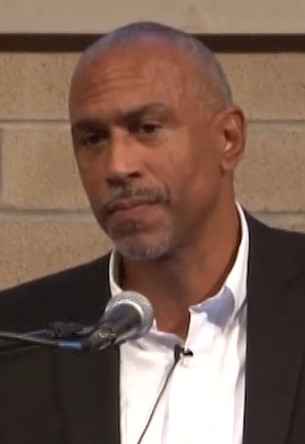School choice is a term for education options that allow students and families to select alternatives to public schools. It is the subject of fierce debate in various state legislatures across the United States.

Charter schools in the United States are primary or secondary education institutions that are public schools which are publicly funded and operate independently, rather than being overseen by local school districts. Charter schools have a contract with local school districts or other authorizing bodies which allow them to operate. These contracts, or charters, are how charters schools bear their name. They are funded with public tax dollars, though they also fundraise independently. Charter schools are subject to fewer rules than traditional state schools in exchange for greater accountability. Proponents argue that they are meant to serve underserved communities that wish to have alternatives to their neighborhood school. Charters are run as either non-profit or for-profit institutions. However, there are some for-profit management organizations that hold charters, though these are only allowed in Arizona. Only non-profit charters can receive donations from private sources, just the same as traditional public schools.
In the U.S. education system, magnet schools are public schools with specialized courses or curricula. Normally a student will attend an elementary school, and this also determines the middle school and high school they attend, unless they move. "Magnet" refers to how magnet schools accept students from multiple different schools in the area, pulling students out of the normal progression of schools. Attending them is voluntary.
A school counselor is a certified/licensed professional that provides academic, career, college readiness, and social-emotional support for all students. There are school counselor positions within each level of schooling. By developing and following a school counseling program, school counselors are able to provide students of all ages with the appropriate support and guidance needed for overall success.
The San Diego State University College of Education is home of SDSU's teacher education and training programs. It offers undergraduate programs, teaching credentials for degree holders, master's degrees and both the Ed.D and Ph.D doctoral degrees.
Educational leadership is the process of enlisting and guiding the talents and energies of teachers, students, and parents toward achieving common educational aims. This term is often used synonymously with school leadership in the United States and has supplanted educational management in the United Kingdom. Several universities in the United States offer graduate degrees in educational leadership.
The Dewsbury riot of 1989 was a minor clash between activists of the British National Party (BNP) and local South Asian youths. The police used riot gear in controlling the events.
Annette Patricia Lareau is a sociologist working at the University of Pennsylvania.
The National Equity Project, formerly known as the Bay Area Coalition for Equitable Schools or BayCES, is an education reform organization that specializes in leadership development and changing culture and conditions in order to further equity objectives. It is a coaching and consulting organization based in Oakland, California; its name change in July 2010. The name was changed as the organization had expanded into new regions and began offering new services. In addition to schools, they also work with many districts and nonprofits on educational equity initiatives.

Benjamin Ruvin Levin is a Canadian former civil servant, educational scholar, and convicted sex offender. He was a Canada Research Chair in Education Leadership and Policy at the Ontario Institute for Studies in Education (OISE), University of Toronto. He served for three years in the Ontario Liberal provincial government of Dalton McGuinty, as Deputy Minister in the Ministry of Education, after having held a similar post in Manitoba. He also served as an advisor to Ontario Premier Kathleen Wynne.
Barnett Berry is a research professor at the University of South Carolina, where he is the founding director of Accelerating for Learning and Leadership for South Carolina (ALL4SC) — an initiative launched in 2019, to marshal the resources of an entire R1 institution of higher education in service of high need school communities. Barnett's career includes serving as a high school teacher, a social scientist at the RAND Corporation, a professor at UofSC, a senior state education agency leader, and senior consultant with the National Commission on Teaching and America's Future, leading its state partnership network. From 1999 to 2018, Barnett led Center for Teaching Quality website, a non-profit he founded to conduct research and ignite teacher leadership to transform the teaching profession and public education for more equitable outcomes for students. Barnett has authored a wide array of over 120 policy and research reports, journal articles, and commissioned papers. His two books, TEACHING 2030 and Teacherpreneurs: Innovative Teachers Who Lead But Don't Leave, frame a bold vision for the profession's future. He is the 2021 recipient of the James A. Kelly Award for Advancing Accomplished Teaching from the National Board for Professional Teaching Standards and is a policy advisor for the Learning Policy Institute.
Social justice educational leadership emphasizes the belief that all students can and will reach proficiency, without exceptions or excuses, and that schools ought to be organized to advance the equitable learning of all students. Rather than focusing on one group of students who traditionally struggle, or who traditionally succeed, social justice leaders address the learning needs of all students. Social justice educational leadership specifically addresses how differences in race, income, language, ability, gender, and sexual orientation influence the design and effectiveness of learning environments. Social justice leadership draws from inclusive education practices from disability education, but extends the concepts further to support students from diverse groups with a wide range of needs. Through restructuring staff allocation and assessing student progress through disaggregated data, school leaders strive to create schools with equal access and equitable support for all students.
Instructional leadership is generally defined as the management of curriculum and instruction by a school principal. This term appeared as a result of research associated with the effective school movement of the 1980s, which revealed that the key to running successful schools lies in the principals' role. However, the concept of instructional leadership is recently stretched out to include more distributed models which emphasize distributed and shared empowerment among school staff, for example distributed leadership, shared leadership, and transformational leadership.
Education inequality in China exists on multiple levels, with significant disparities occurring along gender, geographical, and ethnic divides. More specifically, disparities exist in the distribution of educational resources nationwide, as well as the availability of education on levels, ranging from basic to higher education.
H. Richard (Rich) Milner, IV is an American teacher educator and scholar of urban teacher education on the tenured faculty at the Peabody College of Vanderbilt University, where he is Professor of Education and Cornelius Vanderbilt Endowed Chair of Education at the Department of Teaching and Learning. Formerly, he was the Director of the Center for Urban Education, Helen Faison Endowed Chair of Urban Education, Professor of Education, Professor of Social Work, Professor of Sociology and Professor of Africana Studies at the University of Pittsburgh. Since 2012, Milner has served as the editor of the journal Urban Education. In 2012, The Ohio State University Education and Human Ecology Alumni Society Board of Governors recognized him with the Alumni Award of Distinction, "presented to alumni who have achieved success in their field of endeavor and have made a difference in the lives of others through outstanding professional, personal or community contributions". Milner is a policy fellow of the National Education Policy Center, and was appointed by Governor-elect Tom Wolf to the Education Transition Review Team in 2015.

Pedro Noguera is the Emery Stoops and Joyce King Stoops Dean of the University of Southern California's Rossier School of Education. He is recognized as a leading scholar of urban public education, equity, and school reform.

Educational management refers to the administration of the education system in which a group combines human and material resources to supervise, plan, strategise, and implement structures to execute an education system. Education is the equipping of knowledge, skills, values, beliefs, habits, and attitudes with learning experiences. The education system is an ecosystem of professionals in educational institutions, such as government ministries, unions, statutory boards, agencies, and schools. The education system consists of political heads, principals, teaching staff, non-teaching staff, administrative personnel and other educational professionals working together to enrich and enhance. At all levels of the educational ecosystem, management is required; management involves the planning, organising, implementation, review, evaluation, and integration of an institution.
Jeannette Louise Oakes is an American educational theorist and Presidential Professor Emerita in Educational Equity at UCLA's Graduate School of Education & Information Studies. She was the founder and former director of UCLA’s Institute for Democracy, Education and Access (IDEA), the former director of the University of California’s All Campus Consortium on Research for Diversity (ACCORD), as well as the founding director of Center X, which is UCLA’s reform-focused program for the preparation of teachers and school administrators.
Paul Reville is a U.S. politician, teacher, school principal, and educational researcher who was the Massachusetts Secretary of Education from 2008 to 2013 under Governor Deval Patrick. He currently serves as the Francis Keppel Professor of Practice of Educational Policy and Administration at the Harvard Graduate School of Education.
Mavis G. Sanders is an American research scientist studying education and Black families. She is senior research scholar of Black Children and Families with Child Trends.



